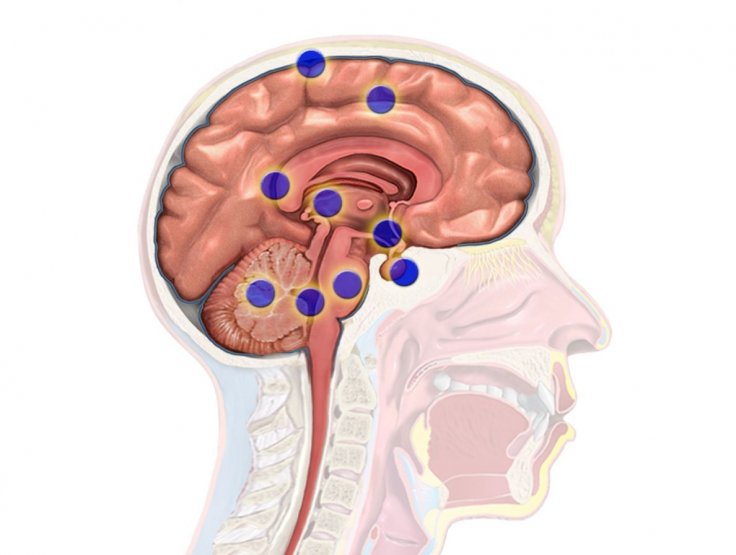For chronic smokers, kicking the butt can be a difficult pursuit as the nicotine found in tobacco can be very addictive. They often turn to other sources such as gums and patches for their nicotine fix. This is true even in the case of patients with lung cancer. However, a new study states that this may not be a good idea as nicotine can promote the spread of cancer from the lungs to the brain.
According to researchers from Wake Forest School of Medicine, nicotine leads to the spread of cancer from the lungs to the brain where it leads to the formation of lethal metastatic tumors. The study states that this makes the use of nicotine replacement therapies for the cessation of smoking unsuitable.
"There is an urgent need to understand the mechanisms that drive brain metastasis so that more effective therapies can be developed," said Dr Kounosuke Watabe, lead author of the study.

Promotes the Growth of Metastatic Tumors
The researchers observed 281 patients with advanced lung cancer. They found that those who smoked cigarettes had a notably increased incidence of brain cancer. Following this, they used a mouse model to [further study the effect of nicotine on cancer. Through the model, it was gleaned that magnified the metastasis of the brain by crossing the semi-permeable blood-brain barrier.
Once it crossed this barrier, it effected changes on a type of immune cell known M2 microglia and caused it to enhance the growth of the tumor than protect the brain through the secretions of certain molecules. As many as 40 percent of the patients suffering from lung cancer develop metastatic brain tumors.
Nicotine Replacement Therapy Not the Answer
"Many cancer patients find it difficult to quit smoking even after their diagnosis due to nicotine addiction," said Watabe. Several aids such as nicotine gum, nicotine patch, and E-cigarette, are used to supplement nicotine in patients who try to quit smoking.

Unfortunately, the results of the study provide sufficient evidence that nicotine plays a long-term and damaging role in the progression of on brain metastasis progression. Watabe stressed that cancer patients must exercise caution when they resort to the use of supplementary nicotine sources to give up smoking.
Finding Drugs To Undo Damage
In a bid to reverse the ill effects of nicotine, the authors sought drugs that could do so. They identified one — parthenolide. It is a substance that occurred naturally in a medicinal herb known as feverfew (Tanacetum parthenium). Parthenolide successfully reversed in mice the nicotine-caused metastasis.
As the herb has been used for hundreds of years to alleviate inflammation and headaches, the team asserts that parthenolide could serve as a new means in countering brain metastasis. This could be of great benefit, especially to those patients who have a history of smoking or continue to be active smokers.

A Possible Alternative to Radiation Therapy?
Watabe pointed out that, "Currently, the only treatment for this devastating illness is radiation therapy." He explained that conventional chemotherapy medications do not possess the ability to overcome the blood-brain barrier. However, parthenolide can. Therefore, it provides hope as a treatment option, or potentially prevent the metastasis of the brain.
This potential was evidenced by the action of parthenolide in mice. In mice that were treated with the compound, nicotine was inhibited from stimulating the growth of M2 microglia. In addition to this, parthenolide also prevented the spread of cancer to the brain from the lungs, and in effect increasing the animal's chances of survival, according to the study.
"We therefore think that parthenolide could be useful for the prevention and treatment of brain metastasis, particularly for patients with past and current smoking history," concluded Watabe.









